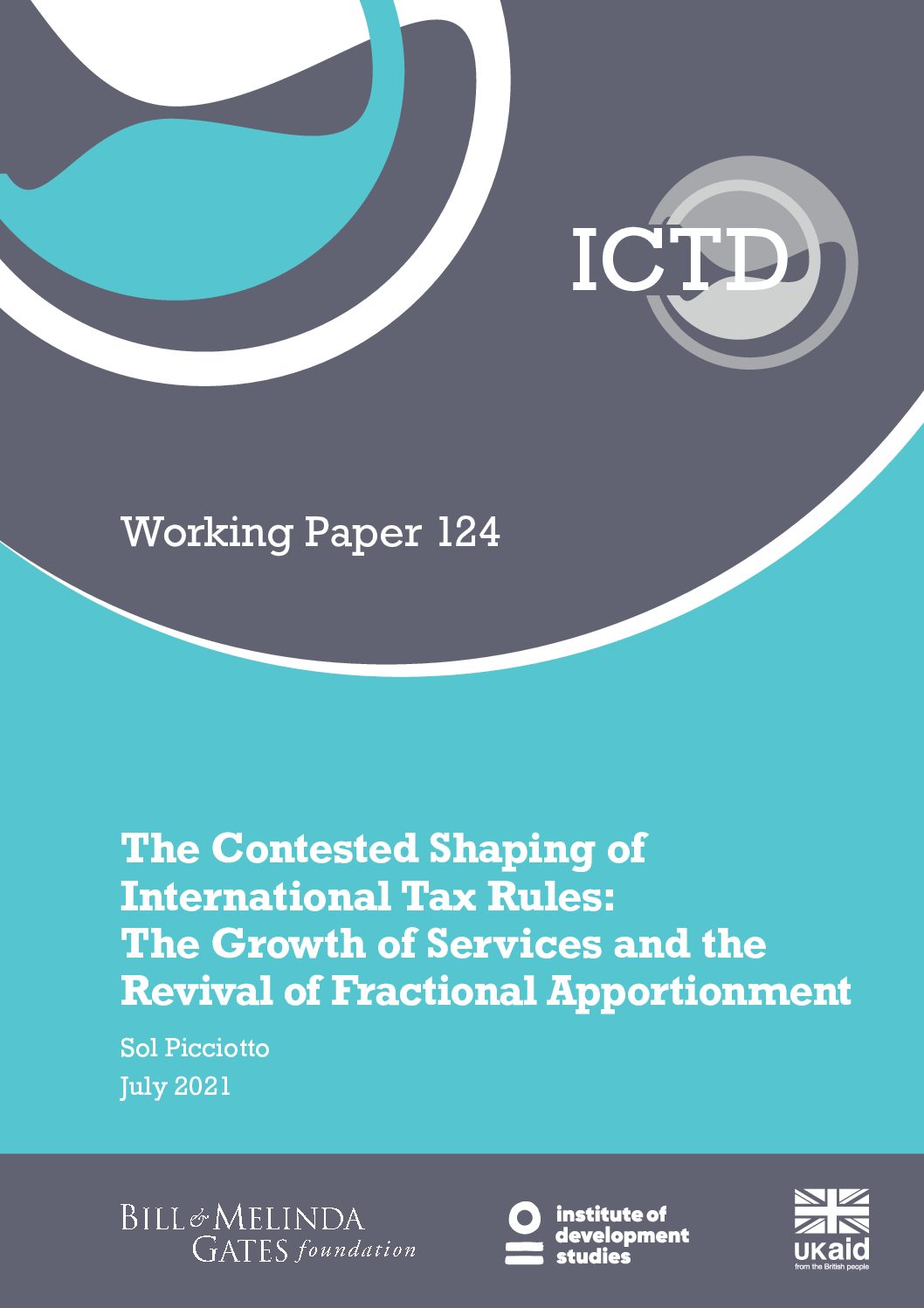Working Paper 124
The digitalisation of the economy has spotlighted fundamental flaws in international tax rules, which have been exacerbated since the 1970s with the wider shift to the services economy and the growth of international services. These systemic flaws have been more evident from the perspective of countries that are mainly importers of services that have tried to retain rights to tax profits at the source from which they derive.
While they succeeded in retaining a wider scope for source taxation, key provisions have been subject to continuing conflicts and contestation over their formulation and interpretation, leaving a legacy of ambiguity and confusion. Digitalisation has now sparked a dramatic reversal of perspective by more developed countries and an acceptance of principles they have long resisted: that taxation of transnational corporations can be based on apportionment of an appropriate fraction of their global income and can be by countries from where they derive income, regardless of physical presence.
This paper outlines the contested process that has shaped the formulation of key provisions on taxation of international services, discusses the recent moves to reshape these rules and evaluates some policy options for capital-importing countries to strengthen their taxing rights in the current context.

